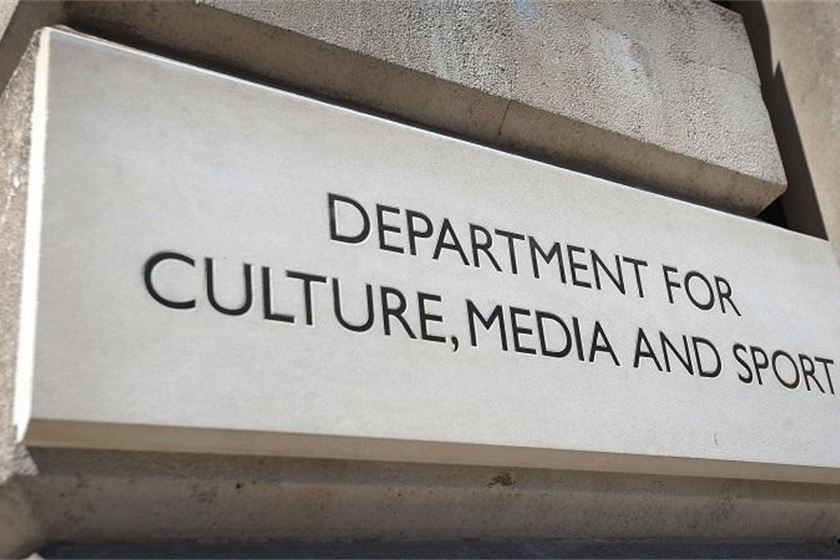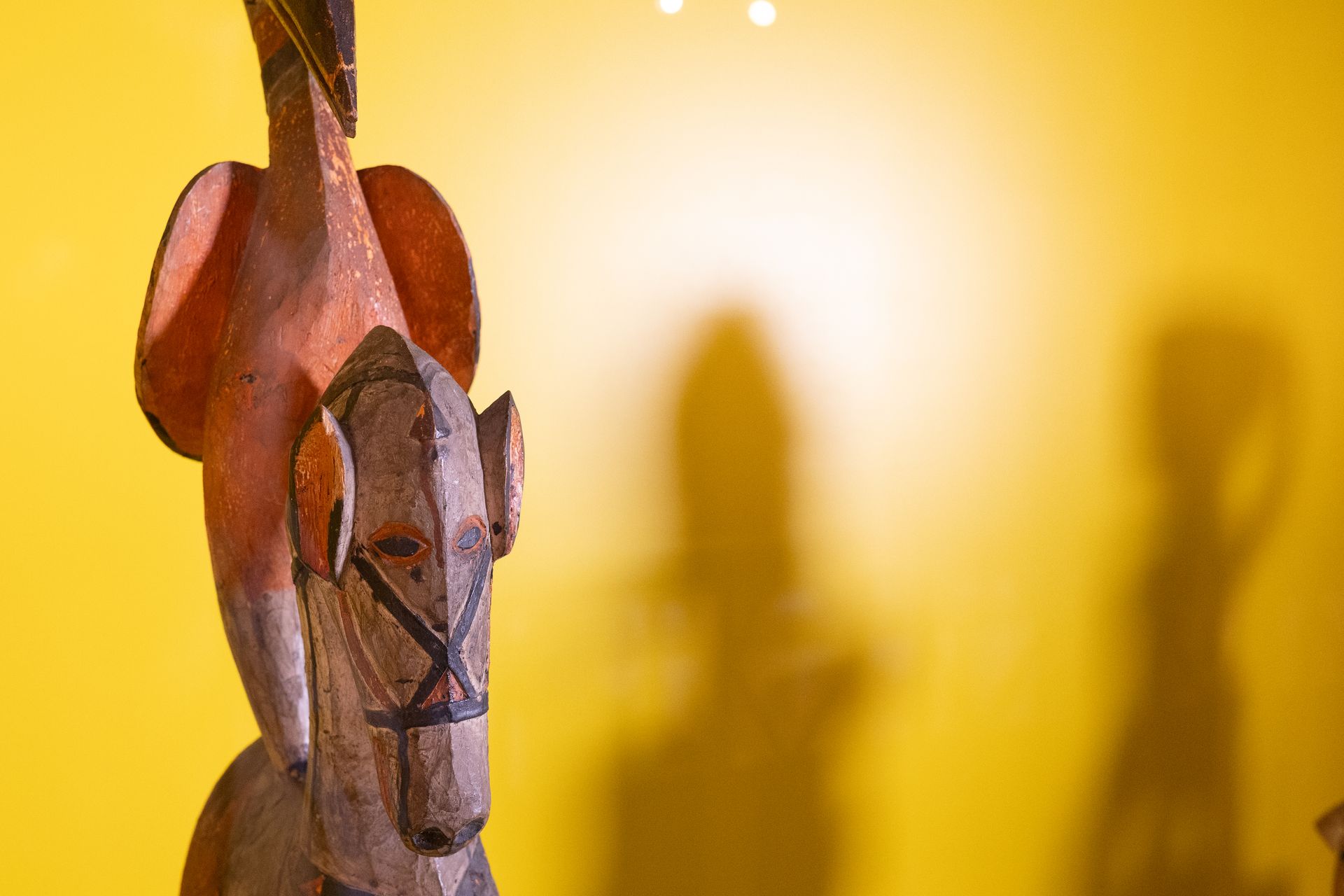Cultural Restitution
SHARE ARTICLE
Last week, newspaper headlines claimed that progress is being made in talks to return the Parthenon Marbles. But I’m not convinced that confidence in their complete recovery by Greece is warranted.
A new ‘cultural partnership’ between Greece and the British Museum is certainly a possibility; a rotation of the Marbles may also be on the agenda. But a full transfer of title of the British Museum’s greatest asset - whether you agree such a transfer must take place or not – is surely a risk too far for the Museum’s trustees. It can only intensify pressure on the Museum to return other treasured assets. And there’s no sign of the Government or the Museum prepared to do that.
So, what do we think is really happening? Putting aside the moral, nationalistic and ethical arguments in favour of repatriation, can we be certain both parties are engaging seriously enough to deliver a lasting solution, or is the British Museum engaging in a diplomatic quick step?
Last week, in an exclusive report the Greek newspaper Ta Nea confirmed that serious discussions are moving forward, claiming significant progress has been made in a series of “behind-the-scenes” meetings between senior Greek and British Museum officials. Apparently, meetings have been taking place in secret over the past twelve months. Some of them at Greece's embassy in London; the most recent was held just weeks ago at the five-star Berkeley Hotel in Knightsbridge, where George Osborne chair of the British Museum’s trustees met for private talks with Greek Prime Minister Kyriakos Mitsotakis.
“The return of Phidias’s masterpieces to Greece was the only topic on the agenda of these meetings”
Ta Nea official source
While a Greek official cautioned “we cannot rule out that talks might hit a stalemate at the eleventh hour”, Greek officials believe the discussion went well. “We’ve come a long way,” the official said. “However, some matters remain pending. We agree on a lot, but there are also points of disagreement.”
One of the major points of disagreement must involve the issue of who really owns the Marbles. A political and legal solution to this two hundred-year dispute has so far proven out of reach. Therefore, unless the British Museum and the Government are prepared to relinquish complete ownership of all or some of these ancient sculptures, any future accord must involve Greece agreeing some form of renewable loan agreement without a transfer of legal title. Greece has always insisted that nothing less than full ownership is acceptable. Relaxing this condition would represent a major concession by Greece.
The British Museum says it has always been prepared to loan sculptures from their Parthenon collection. They support this claim by pointing to at least one loan arrangement of a Parthenon sculpture made in 2014. That year they loaned a statue of the river goddess Ilissos to an exhibition in the State Hermitage Museum in St Petersburg. The arrangement provoked outrage at the time with the then Greek Prime Minister Antonis Samaris, who pointed out the loan effectively ended the Museum’s argument that the sculptures were immovable.
Mitsotakis, Greece’s current Prime Minister, has shown the same determination to complete a deal and has stated publicly he will use “every means” possible to achieve his country’s long-held ambition for the complete recovery of the Marbles. Meeting with British Prime Minister Boris Johnson in November 2021, Mitsotakis introduced the idea of providing the British Museum with rotating loan exhibitions of major Greek antiquities in exchange for transferring title of the Marbles.
Offering to swap treasures is a Greek strategy that appears to be working. Greece continues to maintain that a loan of the Marbles is not sufficient, but earlier this year, Greece recovered a marble fragment of a foot removed from the Parthenon, held by a museum in Palermo, Sicily. Negotiations started on the basis of a four-year loan agreement and an exchange of the foot for other Greek antiquities. But within five months, the Greeks had secured legal title and the foot has now been reattached to the figure of a goddess in the Acropolis Museum.
Greek officials were probably hoping to follow the same Palermo loan model with the British Museum. But they weren’t so lucky negotiating with Johnson, who side-stepped Mitsotakis’ proposal, insisting “this matter is one for the trustees of the British Museum.”
That argument continues to be spurious. Of course, the trustees can agree some form of loan, but even if they did feel compelled to return the Marbles on a permanent basis, the Museum’s governing Act prevents them from doing so. The very few exemptions in the British Museum Act 1963 that permit disposals do not apply to the Marbles. So, as only Parliament can amend this Act, the ability of the Museum’s trustees to decide the Marbles' future is well and truly neutered. The decision continues to rest in the hands of members of both houses of parliament. It's hard to discern which way each house would vote, even harder knowing that former culture ministers do one thing while in office and say a completely different thing after leaving office.
Nevertheless, after more than twelve months of secret discussions, the mood does appear to have changed and if the Ta Nea report is accurate that secret discussions are continuing, then some form of new Parthenon partnership may still be on the agenda.
Certainly hopes were raised among pro-return campaigners when George Osborne took over the chair of the Museum’s trustees in June 2021 and adopted a marked change in tone. Interviewed on LBC Radio one year after his appointment, Osborne suggested “there is a deal to be done” over the Marbles if “we both approach this without a load of preconditions, without a load of red lines.”
However, he was careful not to specify what those preconditions and red lines might be.
But there's further evidence the British Museum is prepared, using their own words, to “change the temperature of the debate”. Museum rhetoric began to shift after a British delegation to a UNESCO meeting in September 2021 came under attack from other countries for the UK’s failure to sit down and negotiate with Greece. The UK was recommended “to reconsider its stand and proceed to a bona fide dialogue with Greece on the matter [of the Parthenon Marbles]”.
Directly after that meeting, the British Museum’s deputy director Jonathan Williams introduced a more conciliatory approach, confirming “There is space for a really dynamic and positive conversation.”
Where exactly that dynamic and positive conversation is leading is still unclear. Could it perhaps lead to a solution that side-steps the ownership issue and involves a series of renewable loans? Recent events have not been encouraging for Greece.
While the Museum’s immediate post-UNESCO rhetoric may suggested some form of partnership is still a possibility, any optimism was dashed last month when Osborne gave a speech at the Museum’s annual trustee dinner. There he made it clear that complete repatriation and transfer of ownership is not on the table. Dismantling the collection, said Osborne, “must not become the careless act of a single generation.”
At a stroke, Osborne appears to have retreated into the spirit and letter of the British Museum’s governing Act and its historic intransigence against all repatriations - even those few permitted under the existing Act. Osborne has also retreated into the policy position of present ministers of state, who on multiple occasions this year have spoken out against returning artefacts and remain against any revision of heritage legislation.
I’m not surprised by Osborne’s apparent volte face. After all, one of the priorities he was given when appointed as chairman is to raise money for the Museum’s ambitious and radical “Rosetta Project”, a major development programme to overhaul the Museum’s ageing fabric and infrastructure. The Bloomsbury gallery spaces are badly in need of repair and one of the reasons why the Museum has struggled to defend its stewardship of the Marbles is the visibly decrepit condition of the galleries where the sculptures are displayed. A leaking roof has led to frequent closures of the galleries where the Parthenon sculptures and other treasures are displayed.
Among its other objectives, the Rosetta Project, forecast to cost around £1 billion, could help strengthen the Museum’s hold over the Marbles, as well as its other great treasures, by improving their display. At the same time, the Museum also aims to “pioneer new ways of working in partnership with our networks, nationally and internationally,” according to Osborne’s predecessor as chair, Richard Lambert.
So, this doesn’t seem the right moment for Osborne to negotiate away one of the Museum’s greatest assets, just as he sets out to raise the money to improve their access and display.
Put simply, the Museum has too much else to lose if it yields up ownership of any object from the Parthenon collection. In particular, they risk a deluge of demands from other nations like Nigeria and Ethiopia who will leap on this precedent to demand the return of items where claims for repatriation are even stronger.
So what form of partnership arrangement might the Museum consider?
Perhaps Lambert’s words provide a clue. There’s undoubtedly a “partnership opportunity” for a long-term sharing arrangement for a selection of sculptures with the Acropolis Museum and, in particular, while British Museum spaces are undergoing refurbishment. Rotating loans of Greek antiquities, such as the gold funerary mask of King Agamemnon offered by Prime Minister Mitsotakis in exchange for loans of metopes and statues to fill the voids in the Acropolis Museum, is also an attractive proposition for the British Museum.
If the concept of a "loan" is a sticking point for Greece, then an arrangement could be dressed up as a "cultural partnership". Last July, London's V&A completed just such a partnership when they returned an ancient head to the Istanbul Archaeology Museum on the basis of a long-term renewable loan.
But it's still hard to believe the question of title can be removed altogether from these negotiations - hard to ignore and hard to eliminate for either nation. Discussions may well have “come a long way” and renewable loans may still be on the cards if the issue of ownership can be eliminated from a final agreement. Otherwise, don’t be surprised if this single issue continues to thwart Greece’s ambition to recover full title over the Marbles and scupper this present round of negotiations.
After this was written.....
Press speculation about returning the Marbles continued into January 2023, when The Daily Telegraph reported George Osborne "is understood to have drawn up an agreement in which the antiquities would be repatriated as part of a 'cultural exchange'" (04 Jan 2023). The paper suggests the arrangement "may start with a small token loan", but also recognises this "gesture" is unlikely to end the long-running dispute.
Speaking on BBC Radio 4's 'The Media Show', Culture Minister Michelle Donelan was clear that reports Osborne was preparing to return some of the Marbles was "not his intention" - the Parthenon Marbles "belong here in the UK". Returning the sculptures would "open the gateway to the question of the entire contents of our museums," she added.



